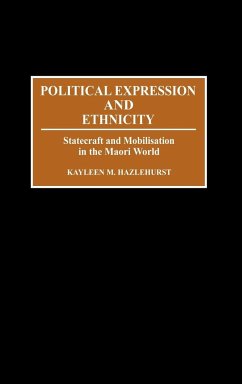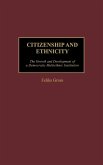Hazlehurst explores the political importance of ethnicity for a minority indigenous population, the Maori of New Zealand. Drawing on close ethnographical observation and extensive interviews with key participants, Kayleen Hazlehurst provides a comprehensive narrative and analysis of the creation of the Mana Motuhake party and its formative electoral experiences. Hazlehurst places the emergence of the party in the early 1980s in the context of historical patterns of resistance and cooperation with the European majority. Modern political networks, leadership styles, mobilization strategies, ideologies, political rhetoric and symbology are examined. The study provides an overview of the contested nature of Maori ethnicity and of conflicting modern and traditional loyalties.
Hinweis: Dieser Artikel kann nur an eine deutsche Lieferadresse ausgeliefert werden.
Hinweis: Dieser Artikel kann nur an eine deutsche Lieferadresse ausgeliefert werden.








